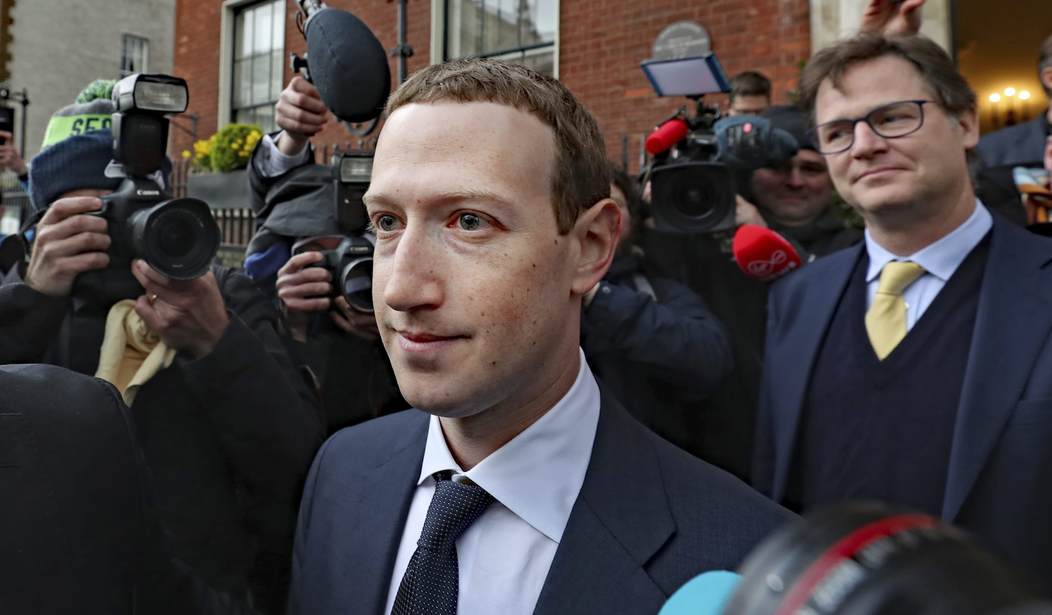Facebook is “worried” about emails that might link company founder/CEO Mark Zuckerberg to the company’s “questionable” privacy practices, according to a report on Wednesday in the Wall Street Journal. That’s a bit like saying my wife is “aware” that I’ve been seen enjoying the “occasional” martini, but we’ll get back to that in a moment. First, a few details from that WSJ story.
According to “people familiar with the matter,” as they say, “the unearthing of the emails in the process of responding to a continuing federal privacy investigation has raised concerns that they would be harmful to Facebook — at least from a public-relations standpoint.” Facebook has since 2012 been operating under a consent decree with the Federal Trade Commission regarding user privacy, but according to the WSJ‘s unnamed sources, “Zuckerberg and other senior executives didn’t make compliance with the FTC order a priority.”
Ya think?
Facebook users might be under the impression that all their precious data and metadata stay inside of Facebook’s walled garden, because Facebook keeps promising more privacy. The truth of the matter is that not even a years-old consent decree could change their evil ways.
Back in December, Facebook “gave some of the world’s largest technology companies more intrusive access to users’ personal data than it has disclosed, effectively exempting those business partners from its usual privacy rules,” according to a New York Times exposé. This was months after yet another FTC probe in 2018 for the Cambridge Analytica “data controversy,” in which FB exposed 87 million users’ most personal information to the British political consulting and data-mining firm. Days later, a seemingly chagrined Zuckerberg wrote, “We have a responsibility to protect your data, and if we can’t then we don’t deserve to serve you.”
But what really changed? Not a damn thing. The situation has gotten so corrosive that it led to a shareholder revolt in May, but as I reported to you at the time (“Why the Zuckerberg-Facebook Cyborg Will Continue Crushing Skulls for Years to Come“), the clever way Zuck structured the company’s voting shares make it impossible to oust him.
Just prior, at Facebook’s annual developer conference last April, Zuckerberg promised a new “privacy-focused social platform,” but the World’s Richest Sociopath™ “couldn’t keep a straight face.” The Guardian‘s Julia Carrie Wong reported that not even his audience of Facebook developers was buying it:
“Now look, I get that a lot of people aren’t sure that we’re serious about this,” Zuckerberg said, through skittish guffaws. “I know that we don’t exactly have the strongest reputation on privacy right now, to put it lightly. But I’m committed to doing this well.”
This, he went on to explain, was a major overhaul of Facebook’s core products, including “re-plumbing the whole infrastructure”, to fulfill Zuckerberg’s new thesis statement: “The future is private.”
Promises, promises.
Zuck made similar promises at least once every single year going all the way back to 2010, when the company claimed users would have “the power to control exactly who can see the information and content they share.”
But the fact is that Facebook goes out of its devious little way to scam users into giving up data. Last August, Apple pulled a Facebook mobile application off the iOS App Store for stealing users’ data.
The app was a VPN (that’s Virtual Private Network) called Onavo Protect. VPNs use end-to-end encryption through a third party server (or even your own home server, if you’re a nerd like me) to protect user privacy. However:
The so-called VPN app has been the source of controversy earlier this year, when the social media giant offered it as a free mobile VPN app, promised to “keep you and your data safe when you browse and share information on the web.”
However, Onavo Protect became a data collection tool for Facebook helping the company track smartphone users’ activities across multiple different applications to learn insights about how Facebook users use third-party apps.
Onavo didn’t “become” a data collection tool; that was the entire purpose of its existence from the start. And Facebook lied about that in order to trick people into installing it. To sum up: Facebook created a PRIVATE networking app with PROTECT right there in its name, but what it actually did was report back to Facebook HQ every single bit of data transmitted to or from users’ iPhone and iPads, effectively breaking Apple’s famous privacy protections.
Facebook flat-out lied to users — after years of promises and FTC investigations, and data breaches, and all the rest. This is who they are and what they do, and I’ll take one of those “occasional” martinis right now, thankyouverymuch.
The company’s business model has always been to hoover up as much data as possible, by any means fair or foul, and to share or leak it at will or by “accident,” in order to sell high-priced targeted advertisements to anyone with a buck. And God only knows what else. Far from being merely “aware” of what’s long been going on, it’s difficult — no, impossible — to imagine that CEO/founder Mark Zuckerberg is anything less than the guiding hand.
The Wall Street Journal story says that the company is worried about the public relations harm this latest news could cause, but if Zuckerberg were actually capable of embarrassment, then Facebook would be a much different, a much better company.










Join the conversation as a VIP Member